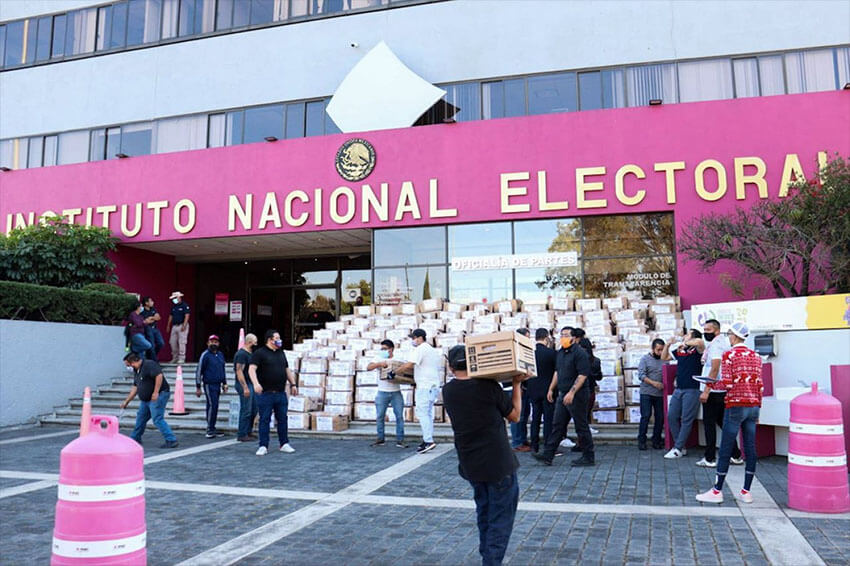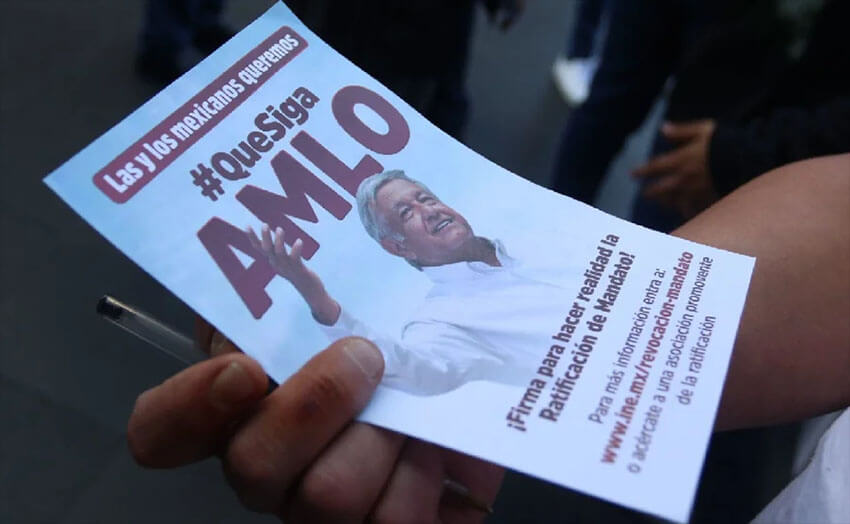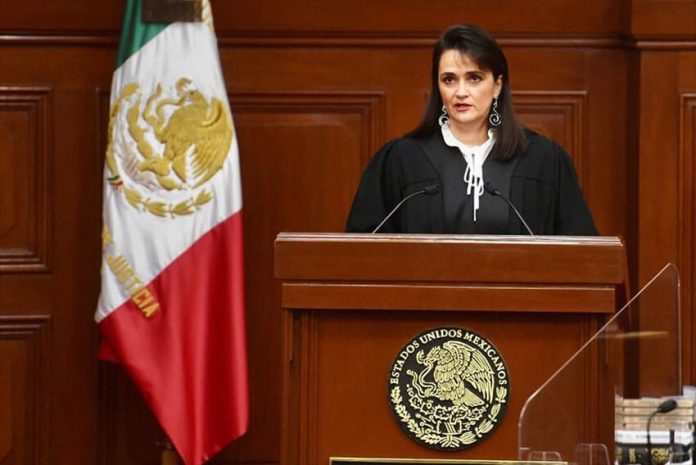The Supreme Court (SCJN) has ruled that a referendum on President López Obrador’s leadership must be held in April, thwarting the postponement of the vote by the National Electoral Institute (INE) on the grounds that it doesn’t have sufficient funds to organize it.
INE councilors voted earlier this month to indefinitely postpone the so-called “revocation of mandate” referendum in which citizens would have the opportunity to vote in favor or against the president completing his six-year term.
The president’s office challenged the decision and the SCJN ruled in its favor. Court sources told the newspaper Milenio that justices were concerned that the postponement of the referendum would undermine citizens’ democratic rights.
The Federal Electoral Tribunal (TEPJF) also ruled against the INE’s postponement of the referendum, determining that a lack of resources did not justify delaying the vote. The TEPJF ordered the INE to adjust its budget in order to stage the referendum in April but also acknowledged that the Finance Ministry has an obligation to ensure it has the money it requires.
The SCJN ordered the INE to continue preparing for a vote on April 10. Nevertheless, López Obrador – an enthusiastic poll observer who is determined to have his high approval rating confirmed at a vote – indicated Wednesday that his government was preparing for the possibility that the INE won’t organize the referendum.
One option is for ordinary citizens to stage the vote, he said. “The citizens could do the consultation, the people could organize it themselves. We won the [2018 presidential election] because of the people, … that’s the essence of democracy – the citizen who wants to exercise his rights, who participates, who seeks change,” López Obrador said.
A second option, he said, would be to have “prestigious” polling companies organize the referendum. In such a case, citizens could even express their opinions over the telephone or online, he said.
“It wouldn’t take much time … you’d have the result and it would be announced,” AMLO quipped.
Despite having a plan B and C, he expressed confidence that the INE would comply with the order to organize the vote.
“They [the INE councilors] made a mistake [in postponing the referendum] and they have to recognize it because they opposed a constitutional mandate and acted in an anti-democratic way. But in politics you have to know how to put things right,” López Obrador said.
The president announced earlier this week that 10 million signatures of support for the referendum had been collected, a figure several times higher than the number needed for the vote to go ahead. However, only 1.3 million of those signatures had been verified as of Wednesday.

On Thursday, AMLO reveled in the TEPJF’s decision, asserting that it was now clear that the referendum would go ahead. He said the Finance Ministry could provide additional funds for the vote as long as government programs weren’t adversely affected.
However, the INE must first determine the cost of the referendum and rearrange its budget to cover as much of it as it can, López Obrador said. He urged the electoral authority to reduce spending on travel, the purchase and rent of vehicles and councilors’ salaries.
Additional funding for the INE, whose budget was recently slashed by almost 5 billion pesos (US $243.7 million), cannot come at the expense of government programs because “we have to keep helping those who need” our support, the president said.
He sought to downplay the TEPJF’s directive for the Finance Ministry to ensure adequate funding for the referendum, asserting that “the important thing is that the consultation will go ahead.”
“… We must all participate,” he declared, adding that the vote would set a precedent that would allow future presidents to be forced out of office before their term ends.
If a president “behaves well,” he or she should be supported but if a president “behaves poorly,” he or she should leave office early, he said.

AMLO wasn’t the only person angered by the INE’s decision to postpone the referendum. Lawmakers with the ruling Morena party – which was founded by López Obrador last decade and is now Mexico’s dominant political force – also took umbrage.
The lower house of Congress, in which Morena and its allies have a majority, considered filing a criminal complaint against the INE councilors but ultimately decided against it. The Chamber of Deputies said on its official social media accounts Wednesday that its president, Morena Deputy Sergio Gutiérrez Luna, had taken all views into account before deciding not to proceed with the complaint.
INE councilor Ciro Murayama said on Twitter that the Chamber of Deputies’ decision to not pursue criminal charges against the councilors was “just as well.”
He charged that the decision was “strictly political” because it came after “broad public condemnation” of the idea that the councilors could face criminal charges for postponing the referendum.
Opposition parties oppose the vote and have accused the president of using it as a promotional tool, while many opposition politicians supported the INE’s decision to postpone it.
The National Action Party, the largest opposition force, has called the referendum “a very expensive and unconstitutional piece of political theater.”
But López Obrador – who claims to possess total faith in the people – holds the exercise up as the epitome of participatory democracy, of which he is a staunch supporter, especially when he is confident that the will of citizens will coincide with his own.
He has held several legally questionable referendums, or “consultations,” since his 2018 election, including those on the previous government’s Mexico City airport project, a brewery in Baja California and whether past presidents should be investigated for crimes they might have committed while in office.
With reports from Milenio, Infobae, AP, El Universal and El País
